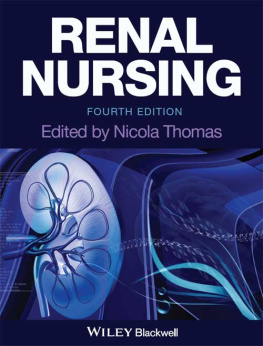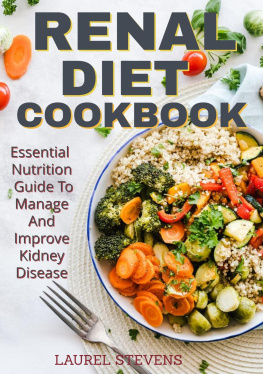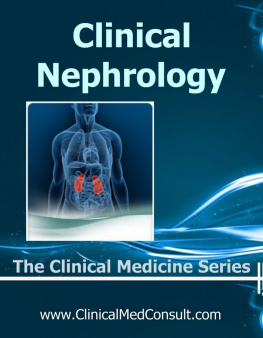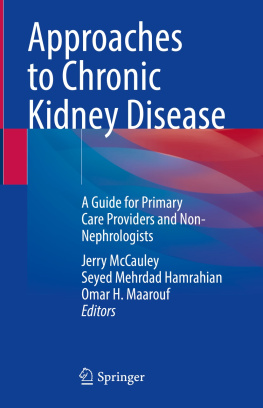This edition first published 2014, 2014 by John Wiley & Sons, Ltd.
First edition 1997, Second edition 2002,Third edition 2008 Elsevier Limited
| Registered office: | John Wiley & Sons, Ltd, The Atrium, Southern Gate, Chichester, West Sussex, PO19 8SQ, UK |
| Editorial offices: | 9600 Garsington Road, Oxford, OX4 2DQ,
UK 111 River Street, Hoboken, NJ 07030-5774, USA |
For details of our global editorial offices, for customer services and for information about how to apply for permission to reuse the copyright material in this book please see our website at www.wiley.com/wiley-blackwell
The right of the author to be identified as the author of this work has been asserted in accordance with the UK Copyright, Designs and Patents Act 1988.
All rights reserved. No part of this publication may be reproduced, stored in a retrieval system, or transmitted, in any form or by any means, electronic, mechanical, photocopying, recording or otherwise, except as permitted by the UK Copyright, Designs and Patents Act 1988, without the prior permission of the publisher.
Designations used by companies to distinguish their products are often claimed as trademarks. All brand names and product names used in this book are trade names, service marks, trademarks or registered trademarks of their respective owners. The publisher is not associated with any product or vendor mentioned in this book. It is sold on the understanding that the publisher is not engaged in rendering professional services. If professional advice or other expert assistance is required, the services of a competent professional should be sought.
The contents of this work are intended to further general scientific research, understanding, and discussion only and are not intended and should not be relied upon as recommending or promoting a specific method, diagnosis, or treatment by health science practitioners for any particular patient. The publisher and the author make no representations or warranties with respect to the accuracy or completeness of the contents of this work and specifically disclaim all warranties, including without limitation any implied warranties of fitness for a particular purpose. In view of ongoing research, equipment modifications, changes in governmental regulations, and the constant flow of information relating to the use of medicines, equipment, and devices, the reader is urged to review and evaluate the information provided in the package insert or instructions for each medicine, equipment, or device for, among other things, any changes in the instructions or indication of usage and for added warnings and precautions. Readers should consult with a specialist where appropriate. The fact that an organisation or Website is referred to in this work as a citation and/or a potential source of further information does not mean that the author or the publisher endorses the information the organisation or Website may provide or recommendations it may make. Further, readers should be aware that Internet Websites listed in this work may have changed or disappeared between when this work was written and when it is read. No warranty may be created or extended by any promotional statements for this work. Neither the publisher nor the author shall be liable for any damages arising herefrom.
Library of Congress Cataloging-in-Publication Data
Renal nursing / edited by Nicola Thomas. Fourth edition.
p. ; cm.
Includes bibliographical references and index.
ISBN 978-1-118-41064-6 (pbk.)
I. Thomas, Nicola, editor.
[DNLM: 1. Kidney Diseasesnursing. WY 164]
RC918.R4
616.6'140231dc23
2013019908
A catalogue record for this book is available from the British Library.
Wiley also publishes its books in a variety of electronic formats. Some content that appears in print may not be available in electronic books.
Cover image: 123RF KrishnaKumar Sivaraman.
Cover design by Meaden Creative.
Contributors
Diane Blyton RN (Child), BN (Hons), MSc
Paediatric Renal Nurse Educator, Nottingham Children's Hospital, Nottingham, UK
Paul Challinor RN, BSc, DN
Nurse Director, B. Braun Avitum, UK
Charlotte Chalmers BSc (Hons), PhD
Lecturer in Biological Sciences, Edinburgh Napier University, Edinburgh, UK
Ratna Das
Annette Davies RGN, BSc (Hons), PGCAP, MSc
Tutor in Acute Care, University of Surrey, Guildford, UK
Victoria Dunsmore RGN
Clinical Nurse Specialist in Transplantation, Barts Health NHS Trust, London, UK
Barbara Engel BSc Biochem, RD, PhD Senior Tutor, Nutrition & Dietetics, Surrey University, Guildford, UK
Brian Gracey MA (Hons)
London, UK
Linda Gracey RGN
London, UK
Shelley Jepson RGN, RSCN, BSc (Hons), MSc
Lead Nurse, Children's Renal and Urology Unit, Nottingham Children's Hospital, Nottingham, UK
Fiona Loud BA (Hons)
Kidney Alliance and Lister Area Kidney Patients Association, West Herts Hospital, St Albans, UK
Althea Mahon RGN, BSc, MSc
Consultant Nurse, Denali Medical Services, Perth, Western Australia
Claire Main RN (Adult), BSc (Hons)
Clinical Education Manager for Renal Division, Baxter Healthcare, Newbury, UK
Shahid Muhammad BSc (Hons), BMS, MRes, LIBMS
Biomedical Scientist Practitioner, Renal Patient Support Group Chief in Research and Paediatric Nephrology Researcher, Bristol, UK
Fiona Murphy RGN, RNT, BSc (Hons) Renal Nurs, BSc (Hons) Health Stud, PGDip Adv Nurs Scie, PGDip CHSciEduc, MA, MSc, PhD (c)
Assistant Professor, School of Nursing and Midwifery, Trinity College Dublin, Dublin, Ireland
Fliss Murtagh PhD, MRCGP
Clinical Senior Lecturer and Consultant in Palliative Care, King's College London, Cicely Saunders Institute, London, UK
Nicola Thomas RGN, BSc (Hons), MA, PhD
Independent Renal Nursing Consultant and Senior Lecturer, London South Bank University, London, UK
Foreword
People with kidney disease have a wide range of needs. These needs include encouragement to achieve the behavioural change goals they have set themselves, support on dialysis, education about their condition, traditional basic care needs delivered with kindness and an understanding of the complexity of renal disease, often occurring with a range of other co-morbidities. The skills and competencies required to address these needs are the foundation of high quality renal nursing care. Looking after people with kidney disease is a hands-on' job requiring an understanding of psychology your own, the patients, the carers and the families; knowledge of the biology and pathophysiology of the kidney; expertise in the nursing of the acutely unwell and the management of complex long-term conditions, as well as emotional resilience.
People with kidney disease need to be involved in their care and decisions about their care if outcomes are to be optimised. Renal nurses are the leaders of the kidney care multiprofessional team. Not only do renal nurses bring their understanding of kidney disease and the experience of managing others in a similar situation they must also be the advocates for holistic care and involve patients and carers in shared decision making. They must be sensitive to the individual who has a disease that is common or rare, but whose experience is unique and who needs support and encouragement appropriate to his/her age, cultural background and degree of health literacy.
Kidney disease is common, harmful and often treatable. Although much progress has been made in identifying chronic kidney disease earlier and delaying the need for dialysis and transplantation, the number of people affected by kidney disease grows each year. In China alone there are 120 million people with kidney disease and it is expected that 1 million Chinese will be receiving dialysis by 2020. Globally 15 million people each year develop acute kidney injury resulting in over 1.5 million deaths. Many survivors of acute kidney injury do not recover completely and go on to develop progressive chronic kidney disease. In the United States, costs of end-stage kidney disease are over 6% of the total costs of healthcare. To change this trajectory we need to support our healthcare systems to address the increasing burden of hypertension, diabetes and obesity. That means helping individual people make healthier choices at whatever stage of kidney disease they are at. In healthcare, quality is added by the direct interactions between healthcare professionals and our patients. Renal nurses have a crucial role in adding quality to care.















